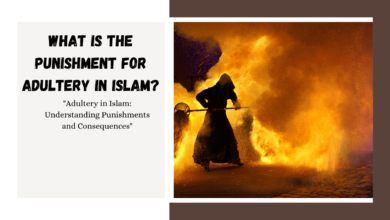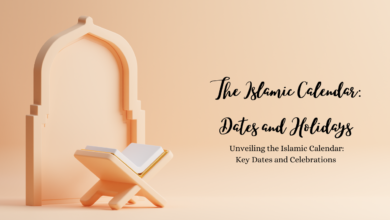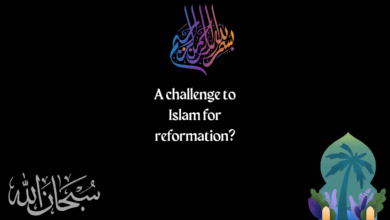What Does Islam’s Holy Book Teach?

Introduction
The Quran, the holy book of Islam, holds a central and revered place in the lives of over a billion Muslims around the world. Believed to be the literal word of God as revealed to the Prophet Muhammad through the Angel Gabriel, the Quran serves as a comprehensive guide to life, addressing various aspects of human existence, spirituality, morality, and societal matters. In this article, we will explore the core teachings of the Quran and the principles it imparts to its followers.
Monotheism and Worship
At the heart of the Quran’s teachings is the concept of monotheism, the belief in one God (Allah in Arabic). The Quran emphasizes the unity of God and the rejection of any form of polytheism or idol worship. Muslims are called to worship and submit only to Allah, recognizing Him as the Creator and Sustainer of the universe.
Ethical and Moral Guidelines
The Quran provides a comprehensive ethical framework that guides the behavior of Muslims. It outlines virtues such as honesty, compassion, humility, and justice, while condemning vices like lying, greed, arrogance, and injustice. It teaches that one’s actions should reflect an internal commitment to righteousness and moral integrity.
Compassion and Mercy
The Quran emphasizes the importance of compassion, mercy, and empathy toward all beings, both humans and animals. It teaches that Allah is the Most Merciful and that believers should embody this mercy in their interactions with others. The Prophet Muhammad is often referred to as “the Mercy to the Worlds,” exemplifying the Quranic principle of compassion.
Justice and Equity
The Quran promotes justice and fairness in all aspects of life. It encourages believers to stand up for justice even if it goes against their own interests or the interests of their families. The principle of justice is underscored by the concept that all individuals are equal before God, regardless of their race, ethnicity, or social status.
Personal Development and Self-Control
Self-discipline and self-control are key themes in the Quran. Believers are encouraged to cultivate virtues such as patience, gratitude, and self-restraint. The Quran recognizes the challenges of managing one’s desires and emotions and provides guidance on how to achieve a balanced and righteous life.
Family and Relationships
The Quran offers guidance on family life and relationships. It emphasizes the sanctity of marriage and family bonds, calling for mutual respect, love, and support between spouses. It also outlines the rights and responsibilities of parents, children, and other family members, stressing the importance of maintaining strong and harmonious family ties.
Tolerance and Coexistence
Islam, as presented in the Quran, promotes tolerance and peaceful coexistence with people of different faiths and backgrounds. The Quran acknowledges the diversity of humanity and views it as a testament to Allah’s creative power. It teaches that differences should be resolved through respectful dialogue and that violence is only permissible in self-defense.
Spiritual Reflection and Worship
The Quran encourages believers to engage in acts of worship and spiritual reflection to draw closer to Allah. It prescribes daily prayers (Salah), fasting during the month of Ramadan (Sawm), giving to charity (Zakat), and undertaking a pilgrimage to Mecca (Hajj) for those who are able. These practices help Muslims maintain a strong connection with God and a sense of spiritual discipline.
Conclusion
The Quran is a profound guide for Muslims, providing them with a roadmap for leading a righteous and meaningful life. Its teachings encompass various aspects of human existence, offering insights into morality, spirituality, social justice, family life, and more. The principles of monotheism, compassion, justice, and self-development are at the core of its message, inviting believers to embody these values in their daily lives and interactions with others.
FAQs about What Islam’s Holy Book Teaches
What is Islam’s holy book?
Islam’s holy book is called the Quran. It is believed by Muslims to be the word of God as revealed to the Prophet Muhammad through the Angel Gabriel.
What does the Quran teach?
The Quran teaches a comprehensive framework for living a righteous and fulfilling life. It covers a wide range of topics including morality, spirituality, social ethics, family values, law, and guidance for personal conduct.
How is the Quran structured?
The Quran is divided into 114 chapters, known as surahs, which vary in length. These surahs cover a wide range of topics and provide guidance on various aspects of life.
What is the central message of the Quran?
The central message of the Quran is the belief in the oneness of God (Tawhid) and the importance of worshiping Him alone. It emphasizes living a life that is in accordance with God’s will and seeking His pleasure.
What are some key moral teachings of the Quran?
The Quran emphasizes virtues such as compassion, honesty, humility, patience, and treating others with kindness and respect. It also condemns behaviors like lying, cheating, and oppression.
How does the Quran address social justice?
The Quran advocates for social justice by promoting the fair treatment of all individuals, regardless of their social status, wealth, or background. It calls for the support of the less fortunate through acts of charity and generosity.






